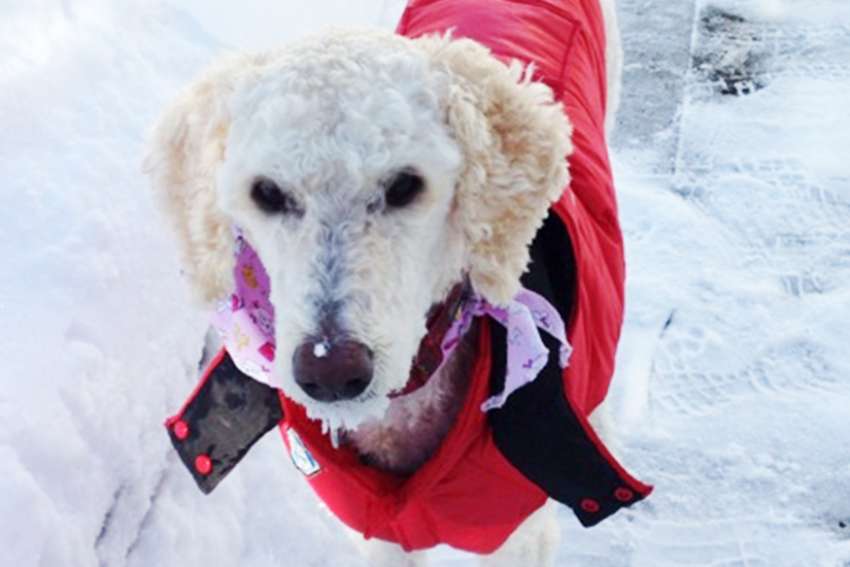The more I thought about the senseless human destruction on our streets, the more I was brought back to thinking about the affect an animal who died a month earlier had upon me. It sounds sappy, and probably not understood if you don’t own a pet, especially a dog.
While tapping on my keyboard on a hot and sticky July afternoon, a friend and former colleague posted on Facebook that she was witness — and only steps away — the night before to a horrific shooting near her home in the tony Toronto neighbourhood of the Annex.
No one is immune to this violence, I thought, as anger began to rise. These brazen, marauding gangland thugs in the Greater Toronto Area are not geographically restricted to the less attractive areas. Gun violence can happen anywhere; although those in poorer areas are at higher risk. Still, we’re all in this together to find solutions.
Gun violence — particularly gun deaths — are spiking this year in and around Toronto. And the surge is putting a strain on St. Michael’s Hospital, where most Toronto shooting victims go because it is the regional trauma centre. During May, June and July, St. Mike’s has treated two to three serious gunshot victims per week, up from the usual one or two a month, Dr. Glen Bandiera, chief of Emergency Medicine, told CityNews.
All this gun violence begs a question: Is there a link between the increased shootings and recent restrictions placed on police such as the Ontario government banning “carding” in 2017? The Toronto police union and the Chief of Peel Regional Police say there is a link. Street checks (also known as carding) are controversial because they involve police questioning residents who are not necessarily under suspicion or tied to an active investigation. Some believe these checks are necessary to prevent crime, instead of relying on police to simply respond after crimes occur. Without them, some argue, the criminals are emboldened and openly flout the law.
But many politicians, including mayors John Tory in Toronto, Bonnie Crombie in Mississauga and Linda Jeffrey in Brampton, have called for stricter police regulations, in part because carding and other law enforcement procedures infringe on the civil liberties of residents, especially those who are young and of colour. It seemed like politics getting in the way of policing and keeping us safe.
I could feel the anger building again. So what if a few innocent young visible minorities have to put up with the annoyance of police questions if it means police can root out the bad guys?
I’m not one of those diehard “law-and-order” types but I was beginning to seethe thinking my friend could easily have been hit by a stray bullet while politicians keep police in handcuffs when it comes to protecting us.
Just then, I felt the “presence” of Lucy, our standard poodle mentioned in April in this space after two coyotes attacked her in our backyard. In her last months, Lucy would often stand outside my office until I’d turn around. Then she’d walk over for a pat and be on her way.
She had this calming effect upon me, but it wasn’t always so. She was my wife’s dad’s dog who rambunctiously almost knocked our then five-year-old daughter off a cottage deck. I subconsciously held this against Lucy for what could have been disaster.
Then 10 years ago, my father-in-law died and five years later my mother-in-law had a stroke and we ended up with Lucy.
I didn’t want her, but my wife insisted. Sometime later, I realized that for my wife, Lucy was an important link to her father. I then let my guard down and fell victim to Lucy’s enormous personality: She was a sweetie with all people, but she was fiercely loyal and could be tough, as the two coyotes found out after jumping our fence in the backyard.
Just before her 16th birthday, she died in peace — not at the fangs of predators — and Lucy became a diamond in the sky.
Thoughts of her still have a soothing influence over me. Instead of seething over the gun violence, maybe there are better ways to catch the bad guys than simply police harassing innocent teens hanging out together? Maybe carding breeds animosity between police and civilians; especially visible minority residents?
The only thing I know for sure is that Lucy was the third dog I’ve had to put down and I don’t want to go through the experience again. It hurts too much. I bet these gun-toting gangsters have never experienced the unconditional love of a dog. Had they, the price of human life would not be so cheap to them.
(Brehl is a writer and author of many books.)


